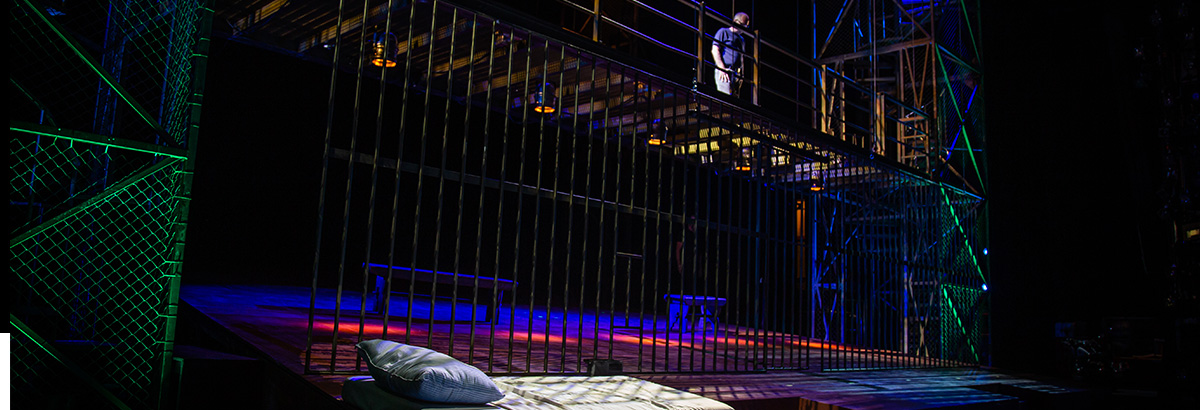August 23, 2019
Why Susan Graham Wants You to See DEAD MAN WALKING at Lyric this November
Lyric audiences have loved American mezzo-soprano Susan Graham for an astonishing three decades. Her unforgettable portrayals here have included Mozart’s and Strauss’s charmingly impetuous Cherubino/The Marriage of Figaro and Octavian/Der Rosenkavalier, Gluck’s passionately noble Greek princess/Iphigénie en Tauride, Berlioz’s groundbreaking Marguerite/The Damnation of Faust and Didon/Les Troyens, and Bernstein’s restless Dinah/Trouble in Tahiti, among others. She has also glamorously charmed and dazzled us in several concerts, including celebrations of Lyric’s 50th and 60th anniversaries.

Susan Graham
Now Susan wants you to experience the Lyric premiere of Dead Man Walking, which has been incredibly close to her heart since she created the role of Sister Helen Prejean nearly 20 years ago. “It was huge and life-changing and daunting and amazing,” she recalls of working with then first-time opera composer Jake Heggie and renowned playwright and librettist Terrence McNally. The pair had been commissioned by San Francisco Opera’s Lotfi Mansouri to adapt the best-selling memoir by the Louisiana nun who became the spiritual advisor of a convicted murderer on Death Row. (The story was also made into an Academy Award-winning film starring Susan Sarandon and Sean Penn.)

Dead Man Walking performed at Teatro Real
The opera Heggie and McNally created has deeply moved audiences in well over 60 productions on five continents. Many new operas are scarcely seen or heard again after their initial runs, but Dead Man Walking is “the most widely performed new opera in decades,” as Susan notes.
What accounts for its enduring power? “It is deeply, deeply, deeply human,” she says emphatically. “It touches something in everybody. The vehicle is the death penalty, but it’s not about the death penalty. It’s about human compassion for everybody. The interesting thing is, Sister Helen of course takes a side, but the opera very clearly represents the pain of everybody – it’s very sympathetic to the victims’ families. It’s a love story in the end.”
Beyond the power of the story, Susan says, “the music is gorgeous. It’s very melodic and full of every emotion. It has turbulence. It has lyricism. The whole opera has a deeply spiritual element.” She recalls that “the first time around I cursed Jake every day – he’s one of my best friends so I can say that! Every rehearsal had at least two or three cry breaks. It hits so close to home. It’s so personal, more than you realize. Maybe it was because I was in a cast full of people I know and love. We all trusted each other and it was such a deeply emotional journey. Jake was there every minute of every day. There was lots of reshaping the first time through. That’s what’s great about working with a living composer – you can work through things. You can’t do that with Mozart!”

Tech week for Dead Man Walking at Lyric Opera
The raw emotions of Dead Man Walking were magnified by the fact that Susan’s father died as she was preparing the role. “The opera was so hugely emotional and monumental in my life, then the real encounter with loss and death was overwhelming. The real Sister Helen helped me so much at the time. Because of the intensity of that experience, it was a long time before I could even think about doing the opera again.”
But return to the opera she did, portraying the murderer’s mother, Mrs. De Rocher, at Washington National Opera a few years ago, as she will at Lyric in November. “The role of the mother is a different mood altogether,” Susan says. “Sister Helen has to hold it together. The mother can just be a mess, and I’m a mess when it comes to this opera – I’m crying, feeling all the feels, and I get to cry while I’m singing. She’s losing her son, and she’s kind of a mess herself, as you can imagine. I play the part very differently than Flicka [Frederica von Stade, the role’s creator] did, because I am different from Flicka. I play the mother with slightly more of an edge. She has anger, she has terror, she has sadness, she has all the great big feelings. It’s very cathartic. And she has some beautiful, very touching music.

Composer of Dead Man Walking, Jake Heggie
“To see the reflection of the bond she had with her son as a little boy, it’s incredibly touching – because he’s this killer. To see that she sees his humanity still, the way only a mother can see who he really is — it’s written so that everyone gets to see his humanness, that’s he’s not a monster. That’s the point of Sister Helen’s lifelong mission – that no matter how bad someone’s actions may have been, she manages to show godly compassion.”
Why should you come to a performance of Dead Man Walking?
“It’s beautiful music and it’s a very compelling story for our times,” says Susan. “It’s about the world we live in now. It’s about people working through pain. We forget that The Marriage of Figaro and other classics were operas about ‘the world we live in now,’ in their time.”
